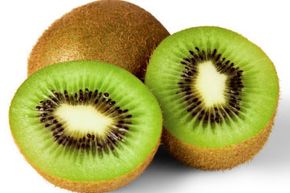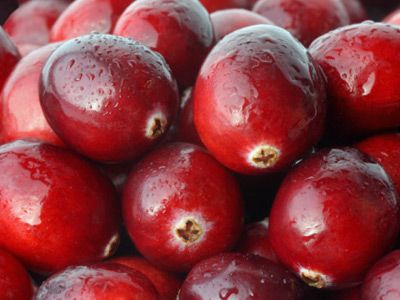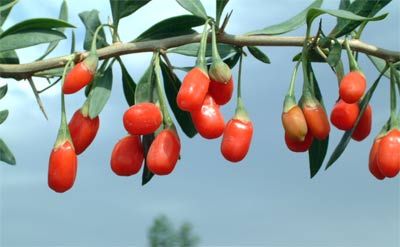Don't let their small size fool you.Kiwifruits,或猕猴桃,包一个大穿孔时减轻ition. In fact, kiwis are the most nutrient-dense of the 27 most commonly consumed fruits. Plus, this unassuming fruit, with its fuzzy peel and brilliant green interior, tastes just as great as it is healthy. Mildly sweet and tangy, kiwis can be eaten on their own or used as an additive in other dishes, such as salads or smoothies. An average kiwi only contains about 50calories, so you can chomp away guilt-free. So why, exactly, are kiwis so good for you? Let's take a look!
Vitamin C
A kiwi has nearly twice the amount of vitamin C of an orange. In fact, a single serving of kiwi contains around 230 percent of the USRDA allowance for vitamin C. This is good news, as this helpful vitamin can protect against everything from cardiovascular disease to skin wrinkling, and has proven effectiveness at warding off immune system deficiencies and cancer. And in case you think 230 percent sounds like a bit too much, Mark Moyad, MD, MPH, says, "The ideal dosage may be higher than the recommended dietary allowance."
Advertisement
Folic Acid
Kiwi contains more folic acid than nearly any other food on the planet. Folic acid is key to the reproduction of red blood cells, which shuttle oxygen to cells throughout your body so they can do their respective jobs. A lack of it in your diet can contribute to anemia.
Fiber
The two types of fiber you get from one serving of kiwifruit amounts to 16 percent of United States Recommended Daily Allowances (USRDA). The soluble fiber it contains appears to protect the heart from disease and diabetes, while the insoluble fiber helps prevent hemorrhoids, constipation and some cancers.
Heart Health
You’ve heard the old wives tale: An apple a day keeps the doctor away. But it turns out that munching on a kiwi might be a better choice when it comes to heart health. Eating one kiwifruit a day can decrease your risk for blood clots by reducing platelet aggregation -- the clumping together of platelets in the blood -- by 18 percent. It will also lower your triglyceride (a kind of fat in your blood) count by 15 percent, which lessens your chance for heart disease and stroke.
Lowers Risk of Macular Degeneration
Aside from yellow corn, kiwifruit contains the most lutein (a powerful antioxidant) of any fruit or vegetable on earth. Lutein may lower your risk of age-related advanced macular degeneration, a disease that ruins your central vision and impairs your ability to see clearly.
Kiwifruit has it all. It's delicious, nutritious and is extraordinarily good for you. It's like an especially tasty medicine, and if you take it every day (or even once or twice a week), you're sure to see long-term health benefits.
Advertisement






